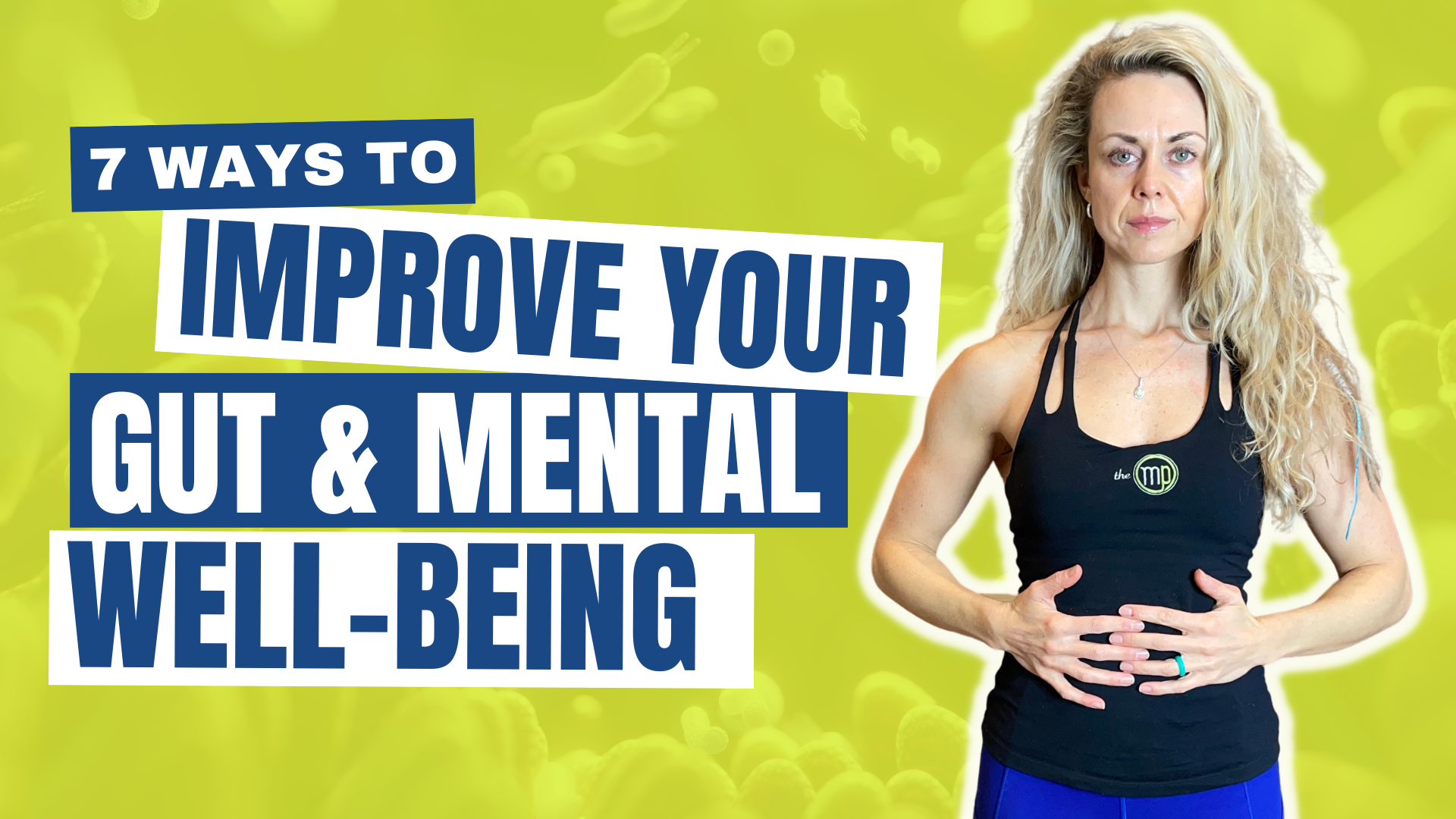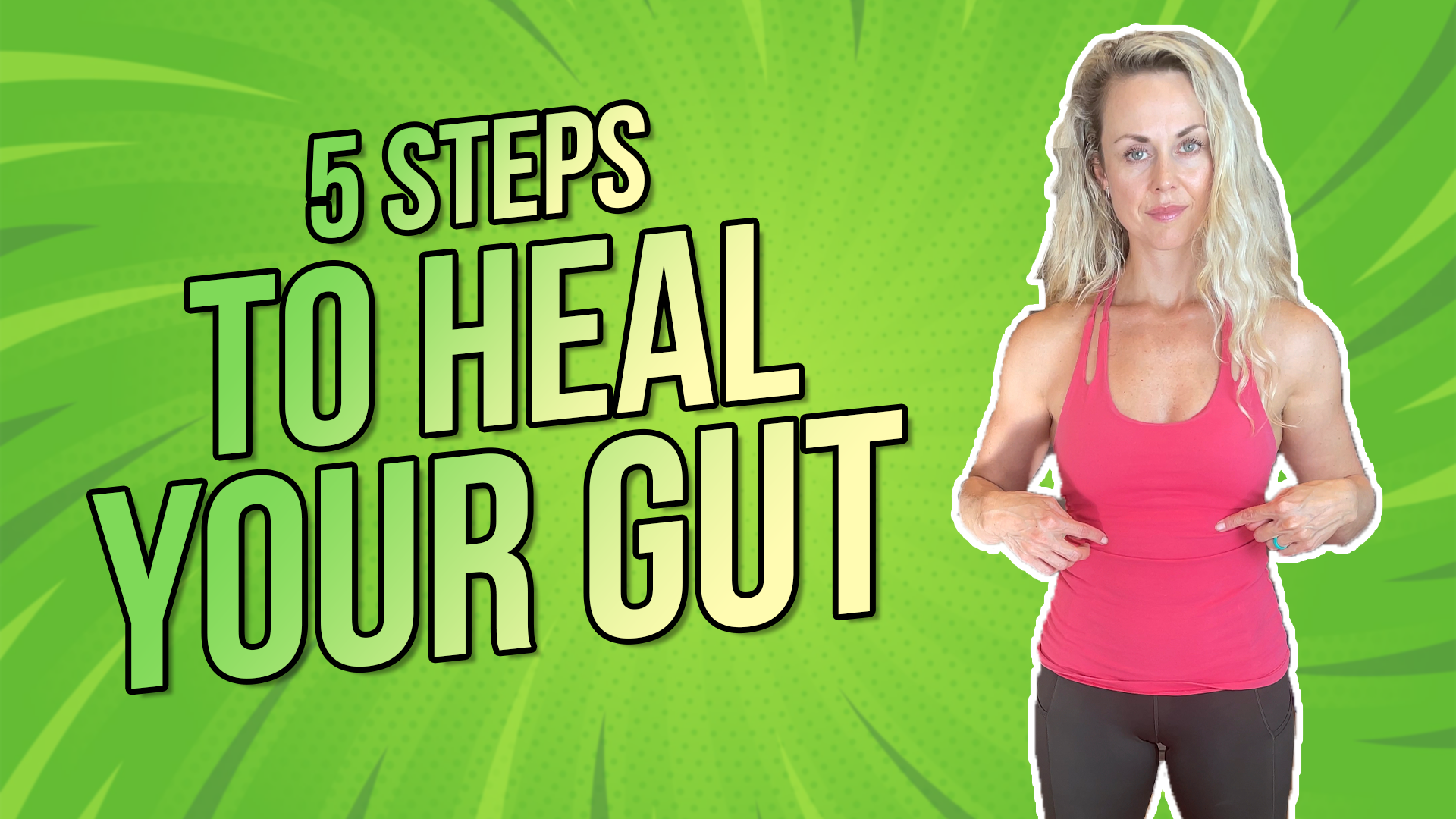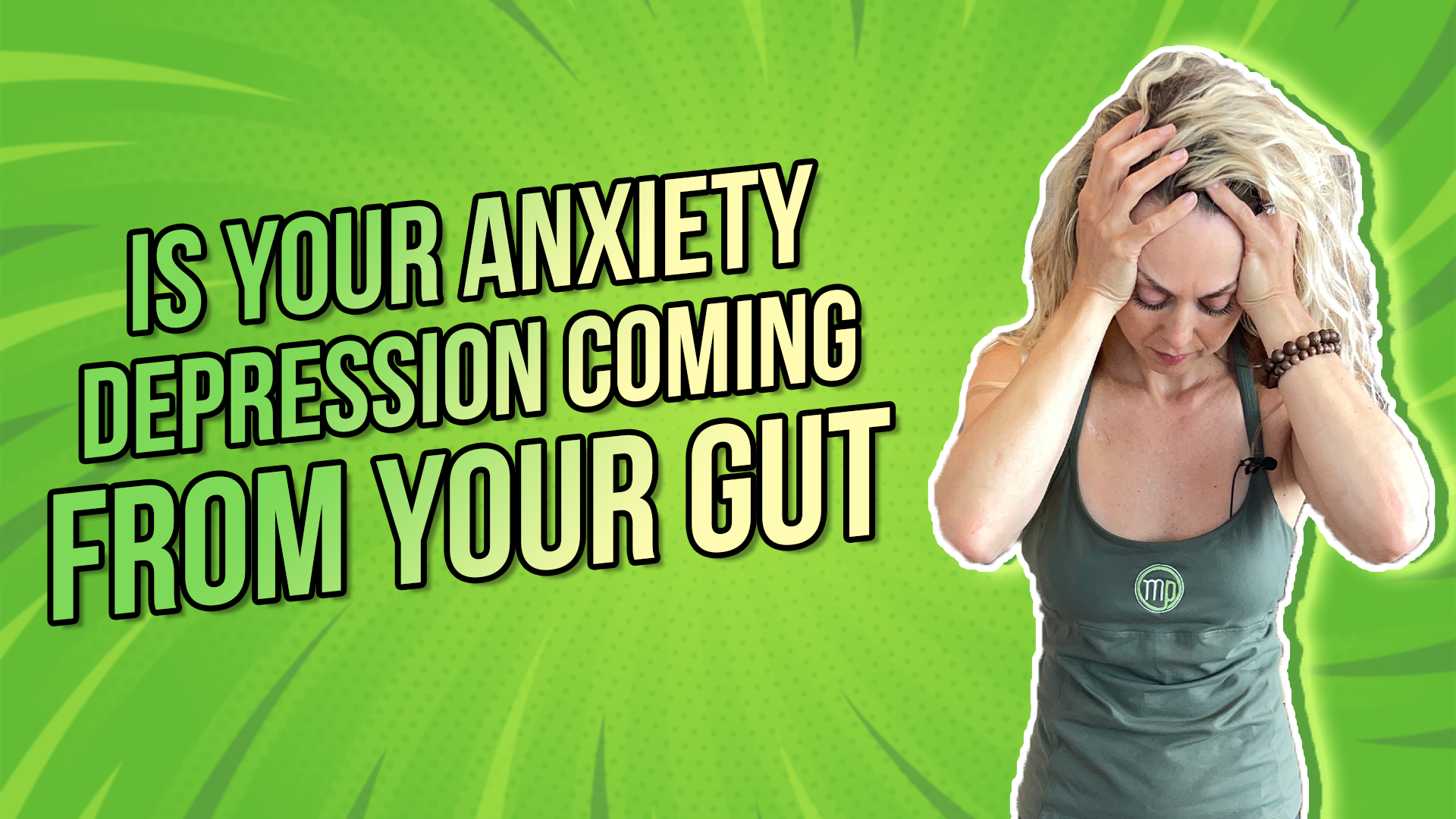Are you ready to embark on a transformative journey towards optimal well-being? If you’re eager to feel your absolute best, you’re in the right place! In this blog post, we’re about to unveil seven incredibly effective strategies to improve your gut and mental well-being.
From dietary advice to physical activities, consider this your comprehensive guide to achieving a healthier, happier you! So, let’s dive right in and explore the recipe for success when it comes to nurturing your gut and your mind.
Rather watch or listen?
The gut-brain connection
Now, many of you have heard me speak about this before, which is how powerful the gut-brain connection really is. What we are fueling our body with, what we’re putting in day in and day out, is directly affecting our brain, thoughts, emotions, and the ability to regulate our nervous system. It is directly affecting our gut.
This beautiful relationship is something that we can optimize through some of our daily habits, our choices, and recognizing what are the things that are going to help our overall emotional, mental, and physical well-being.
7 ways to improve your gut and mental well being
1. Optimizing digestion
Consider taking three diaphragmatic breaths right before you eat. This is because when we bring blood flow to the autonomic nervous system and the digestive tract during our meals, we optimize our digestive capabilities.
If you’re multitasking, like looking at your computer, checking our phone, or while eating, this increases cortisol levels and diverts blood flow away from the digestive tract, slowing down our digestive process. So, if we can take at least three breaths before we eat, or even more, we bring ourselves to a parasympathetic state, promoting ‘rest and digest.’
In addition to that, chewing your food 20 to 30 times can significantly help with the mechanical breakdown of food. This process begins in our mouth, where our saliva releases enzymes to break down the food.
Chewing also signals the body to prepare for digestion, optimizing the production of bile, pancreatic enzymes, and hydrochloric acid. This way, we can break down the food into very fine particles before it reaches the small intestine.
2. Balancing your nervous system
There are so many ways to balance your nervous system, and if you follow any of our videos and our content, you’ll realize that there are endless possibilities. So much of it is about finding what most resonates with you. It could be anything from diaphragmatic breathing, walking, getting out into nature, doing specific vagus nerve exercises, dancing, engaging in authentic movement, or somatic movement where you can freely express your emotions. It could even be as simple as talking to a friend.
There are lots of ways to balance your nervous system, but it starts with recognizing which nervous system state you’re in. Are you in a state of safety and connection, are you in fight or flight, or are you in a freeze state? Once you can identify your current state, you can then choose what you can do to become more resilient and bring yourself back to that state of safety and connection, allowing you to better navigate life’s challenges.
3. Movement and exercise
This can actually help with the diversity in our microbiome, which can ultimately be very protective against conditions like colon cancer and gastrointestinal diseases. Making movement a priority in your life is crucial. This could mean walking, lifting, or running, but it’s important to think about exercise and movement in a specific way.
In my world, they’re a little different because we want to think about moving all day long. Our bodies crave movement, and that’s what we need for a healthy nervous system and a healthy gut. If we can view movement as a gift that we’re nourishing and appreciating, and exercise as a way to push our bodies outside of their comfort zones, taking them a bit past what they’re used to so they can adapt, change, grow, and evolve.
4. Probiotic and prebiotic-rich foods
The way to think of this is that if you are relatively healthy, without any obvious digestive issues, it’s likely easy for you to incorporate probiotic-rich foods. These include items like kefir, kimchi, sauerkraut, and foods with active live cultures, and perhaps even a probiotic supplement.
Now, if you have gut issues and you’re not sure what they are, it can be especially beneficial to consider a stool test to identify the specific issues. Many people with gut problems find that probiotics are not well tolerated, especially if there’s something going on in the small intestine like SIBO (Small Intestinal Bacterial Overgrowth). In such cases, probiotics might not be the first step to take.
However, when we think about general health and well-being, including mental health, probiotic-rich foods are great. When considering psychobiotics, which are specific strains related to mental health, lactobacillus and bifidobacterium are the two most common strains you’ll find in a probiotic supplement. These strains can be particularly beneficial for mental health, and there has been a lot of promising research on them.
Additionally, we want to think about prebiotic foods, such as bananas, garlic, and onions. These foods can be thought of as the fiber sources that probiotics feed on.
5. Anti-inflammatory foods
We should also consider factors like Omega-3s, increasing our intake through fatty fish, as well as foods like walnuts and flax seeds. Simultaneously, it might be beneficial to decrease some of our Omega-6s, which can be found in higher-fat foods, such as seed oils that are often present in packaged foods. The goal here is to optimize our intake of anti-inflammatory nutrients.
Anti-inflammatory nutrients can be thought of as Omega-3s, but also include phytonutrient-rich foods. A great way to approach this is to incorporate a variety of colorful foods into your diet. Think of all the different colors – reds, blues, yellows, etc. Each color provides different nutrients that can help support our biochemistry and promote overall health.
6. Fiber-rich environment
Fiber is incredibly important for maintaining a healthy microbiome. We should aim for at least 25 to 35 grams of fiber per day, although the specific amount can depend on your diet and individual needs. What’s crucial is obtaining fiber from various sources. In this context, diversity in fiber sources is more important than simply meeting a daily fiber goal. It’s this diversity that helps beneficial bacteria thrive in your gut.
7. Specific nutrients
To get a bit more specific about certain nutrients, we can aim for foods rich in tryptophan, which is a precursor for serotonin, often referred to as our “happiness hormone.” These foods can include items like turkey and eggs.
Additionally, we can focus on tyrosine, a precursor for dopamine, which can be found in foods like meat or almonds. It’s important to recognize that specific nutrients like these play essential roles in neurotransmitter production, including serotonin, dopamine, and GABA. Proteins serve as the building blocks for these neurotransmitters, making a protein-rich diet a crucial aspect of maintaining their balance and functionality.
The Bottom Line
These are just seven of many strategies, but I hope they give you a good sense of the various possibilities we have to optimize the relationship between the gut and the brain.
If you found this information helpful, please like, share, and subscribe to our YouTube channel, The Movement Paradigm, for weekly tips on mindset, nutrition, and movement. If you’d like to learn more about how we can assist you on your journey, please don’t hesitate to reach out for a discovery session. We look forward to helping you on your path to wellness.
Other things that might interest you:



